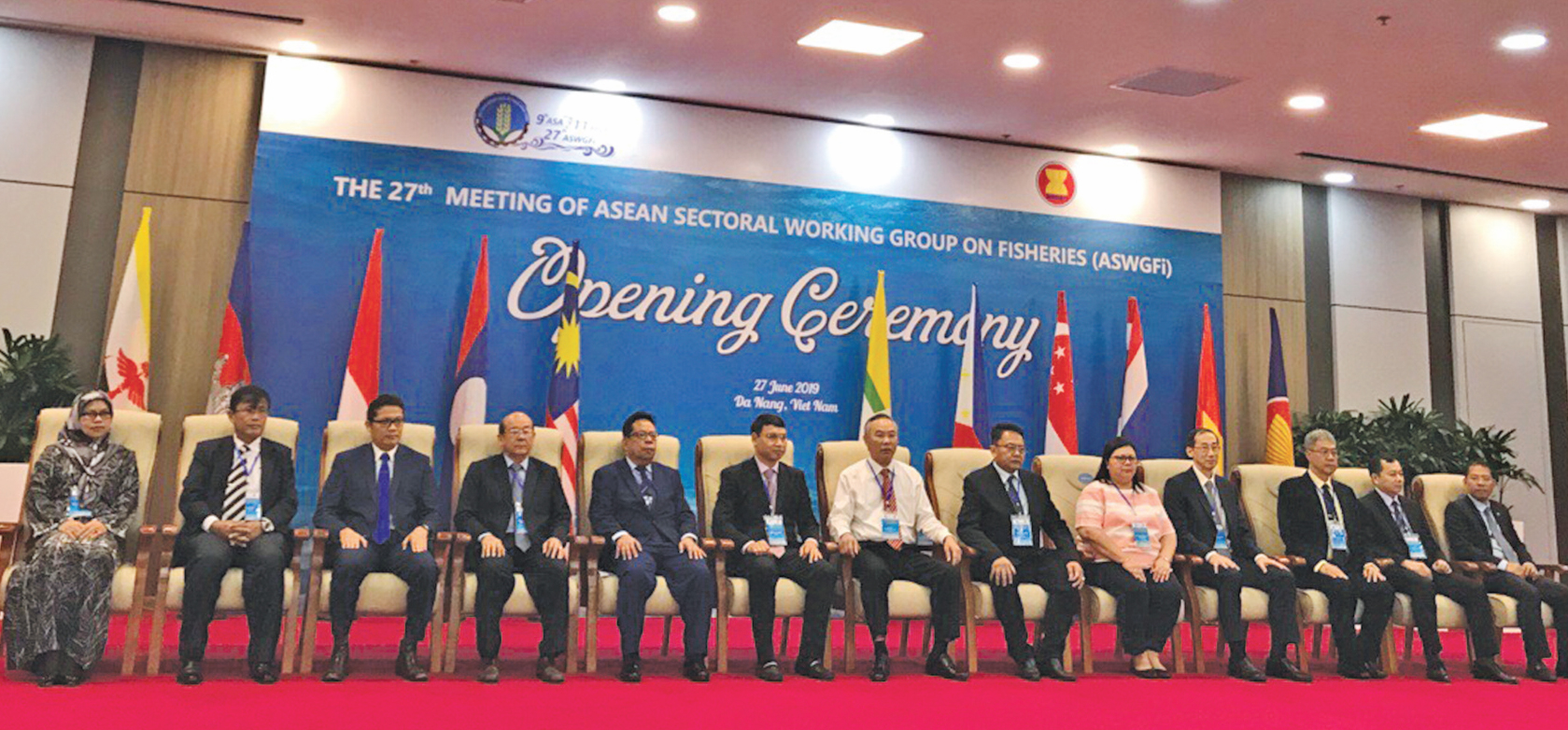(Vietnam seafood) - Southeast Asia has many favorable conditions to develop the fisheries industry; However, most of the member countries' fisheries are now almost in transition from manual, small-scale fisheries to modern, industrial and sustainable fisheries. The cooperation of 11 countries will ensure the sustainable and effective development of the region's fisheries.
At the 9th Meeting of the ASEAN Shrimp Alliance, the 11th Meeting of the ASEAN Aquatic Consultation Forum and the 27th Meeting of the ASEAN Fisheries Working Group (pictured) held in Danang recently found The common voice of the parties.

ASEAN's Standard for Good Aquaculture Practices (GAP) for shrimp
Shrimp is one of the major aquaculture species of many countries in the world. In the ASEAN region, the development of this species is highly appreciated by many countries, including Thailand, Indonesia and Vietnam, which are the three major shrimp producing countries in both the region and the world. To ensure efficient and sustainable development of shrimp farming, ASEAN member countries have updated the situation of implementing plans on the development and implementation of ASEAN's Good Aquaculture Practice Standard (GAP) for shrimp. (ASEAN Shrimp GAP). ASEAN member countries also shared the status of shrimp production of countries in the region and in the world, challenges of shrimp disease problems and orientation of regional mechanism on early warning system of these diseases. shrimp;
ASEAN member countries have agreed on the need to conduct an ASEAN Shrimp GAP assessment and consider the development of an ASEAN certification mechanism in order to promote ASEAN Shrimp GAP recognized in the international market; Technology transfer, joint research and improved shrimp farming practices should continue to be discussed on the basis of common interests of ASEAN member countries or information on shrimp disease outbreaks should be shared with NACA. and ASEAN Aquatic Animal Health Center Network (ANAAHC).
Strengthen coordination in fisheries management, combating IUU fishing
Marine fishery resources are under great pressure due to the increase in fishing activities; how to ensure this sector is sustainable and at the same time restore the resources set by the nations. In the framework of this consultation meeting, ASEAN member countries focused on discussing the management of mining strength; Ensuring sustainable development of small-scale fisheries; Fighting illegal, unreported and unregulated fishing operations (IUU fishing); Strengthen management and regeneration of fishery resources; Traceability of fisheries in fishing and aquaculture; Impact of climate change on fishing and aquaculture activities.
At the meeting, ASEAN member countries shared measures to combat IUU fishing, including the progress in the joining of international agreements such as the Port of National Measures Agreement (PSMA) of FAO and the Platform Agreement. United Nations Migration Fish (UNSFA) implements the IUU Anti-Fishing Area Action Plan (RPOA-IUU); Cooperation to combat IUU fishing in the region; Traceability to prevent seafood products from being illegally exploited from entering the seafood value chain.
Within the framework of the Meeting, Vietnam also affirmed its efforts in the implementation of the 2017 Fisheries Law and its guiding documents; paying special attention to control fishing activities; management of vessels entering and leaving ports, controlling fishery products through ports and the progress of installing VMS, especially for ships with a length of 24 m or more ...
Proposing many joint cooperation in the region
At the 27th ASEAN Fisheries Working Group meeting, the member countries in the region focused on discussing many important issues, including regional cooperation in the implementation of the Feasibility Study Project. formulating the ASEAN common fisheries policy (abbreviated as AGFP). The purpose, to strengthen the role of capture and aquaculture in promoting food security, reducing poverty and creating livelihoods for the people of ASEAN who depend on the production, harvest and consumption of fishery products but maintain the sustainability of resources and the environment.
At the same time, the member countries also proposed establishing an ASEAN Network for combating IUU fishing. By now, IUU fishing is a global problem and a problem for countries in the region; IUU fishing causes economic losses to nations and greatly affects their livelihoods. To ensure the effectiveness of the fight against IUU fishing, close cooperation between countries in the region needs to be further strengthened; The establishment of the ASEAN Network against IUU fishing (AN - IUU) will contribute to better addressing the challenges of combating IUU fishing and create a platform for the parties to share information and coordinate activities. action against IUU exploitation.
Recognizing the cooperation between ASEAN with the governments of Australia, Russia, EU, Japan and international organizations, partners such as FAO, UNEP / GEF, MRC ... to promote responsible fisheries management in the region. especially in combating IUU fishing; proposals from international organizations, partners and donors to promote regional cooperation in continuing their commitment to combating IUU fishing and developing sustainable fisheries.
ASEAN member countries have agreed to submit to SOM-AMAF for approval Regional Guidelines on Cold Chain Management of Seafood Products; Regional guidance on the Early warning system for aquatic animal health; Proposing the establishment of an ASEAN Network for combating IUU fishing.
|
>> The establishment of the ASEAN Network against IUU fishing (AN - IUU) will contribute to better addressing the challenges of combating IUU fishing and create a platform for the parties to share information and coordinate. joint action against IUU fishing
|
